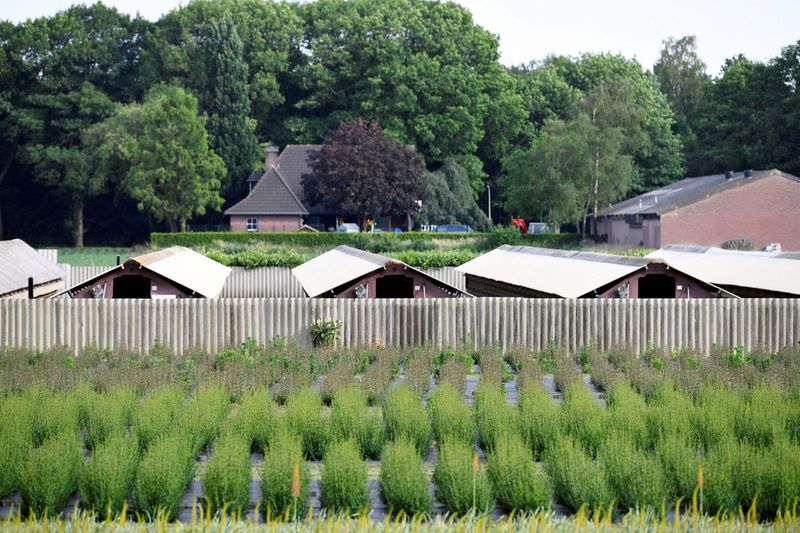By Toby Sterling
AMSTERDAM (Reuters) - Dutch mink farms have begun a government-ordered cull amid concern that animals infected with coronavirus could transmit the illness to humans.
Infected mink have been found on 10 Dutch farms where the ferret-like animals are bred for their fur, according to the country's Food & Wares Authority.
"All mink breeding farms where there is an infection will be cleared, and farms where there are no infections won't be," said spokeswoman Frederique Hermie.
The government ordered the cull of 10,000 mink on Wednesday after determining that affected farms could act as a long-term reservoir of disease.
Dutch mink were first infected with coronavirus by their handlers in April. In May, the government identified two cases in which humans had been infected by sick animals -- the only animal-to-human transmissions known since the global outbreak began in China.
The cull involves farm workers in protective clothing using gas on mink mothers and pups. The bodies will be sent to a disposal plant and the farms will be disinfected.
Groups opposed to the fur trade say the outbreak is another reason to close all farms.
"We are calling for the 24 countries around the world that still allow mink farming to very rapidly evaluate the situation and evidence coming out of the Netherlands," said Clair Bass, executive director of the Humane Society International.
The group says China, Denmark and Poland are the largest mink producers, with 60 million killed annually for their fur.
According to the Dutch Federation of Pelt Farmers there are 140 mink farms in the Netherlands, exporting 90 million euros ($101.56 million) worth of fur a year.
Federation spokesman Wim Verhagen said the cull was "very hard for farmers to accept" as few infected animals show visible signs of sickness. The government is compensating affected farmers.
($1 = 0.8862 euros)
